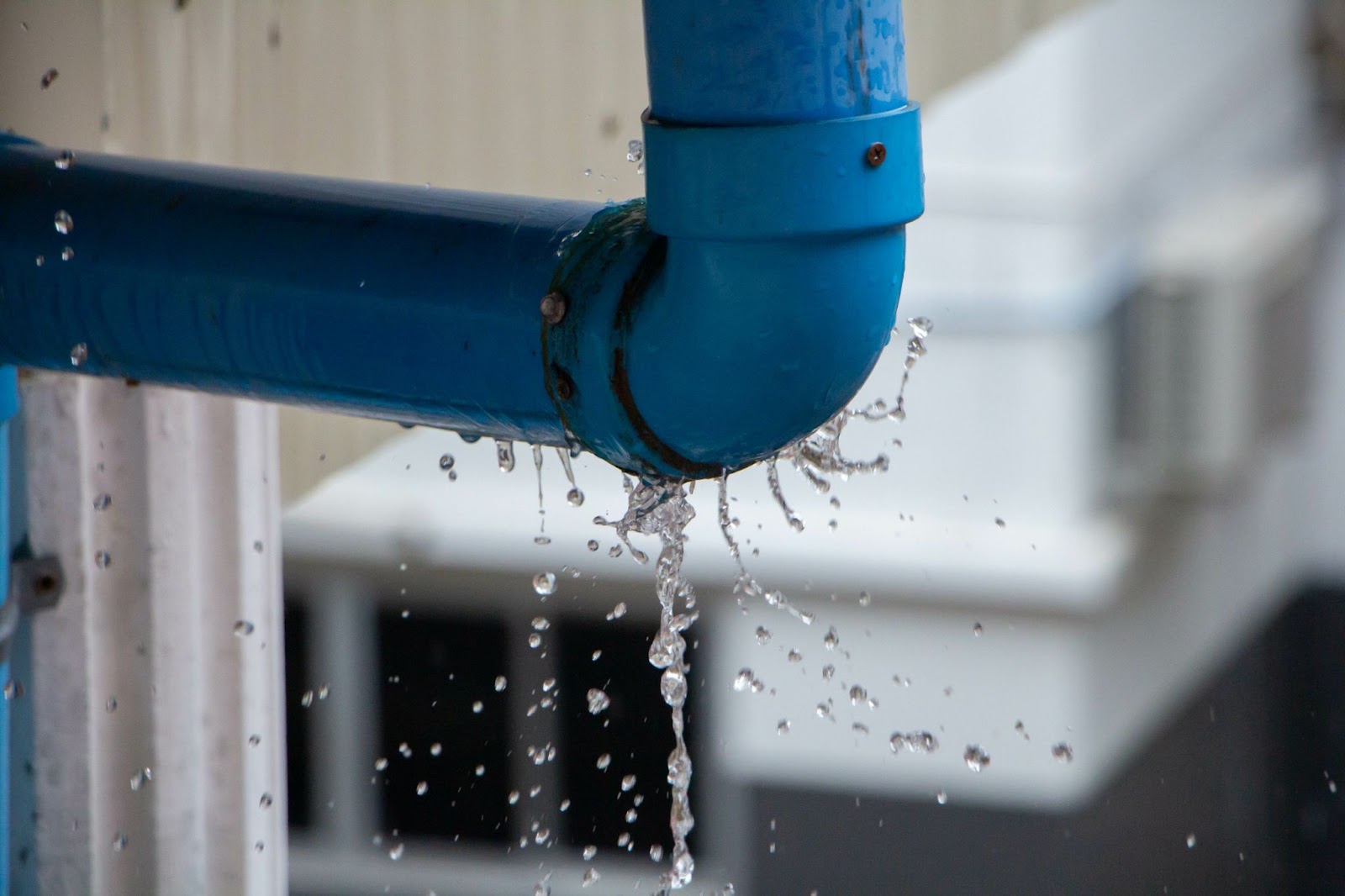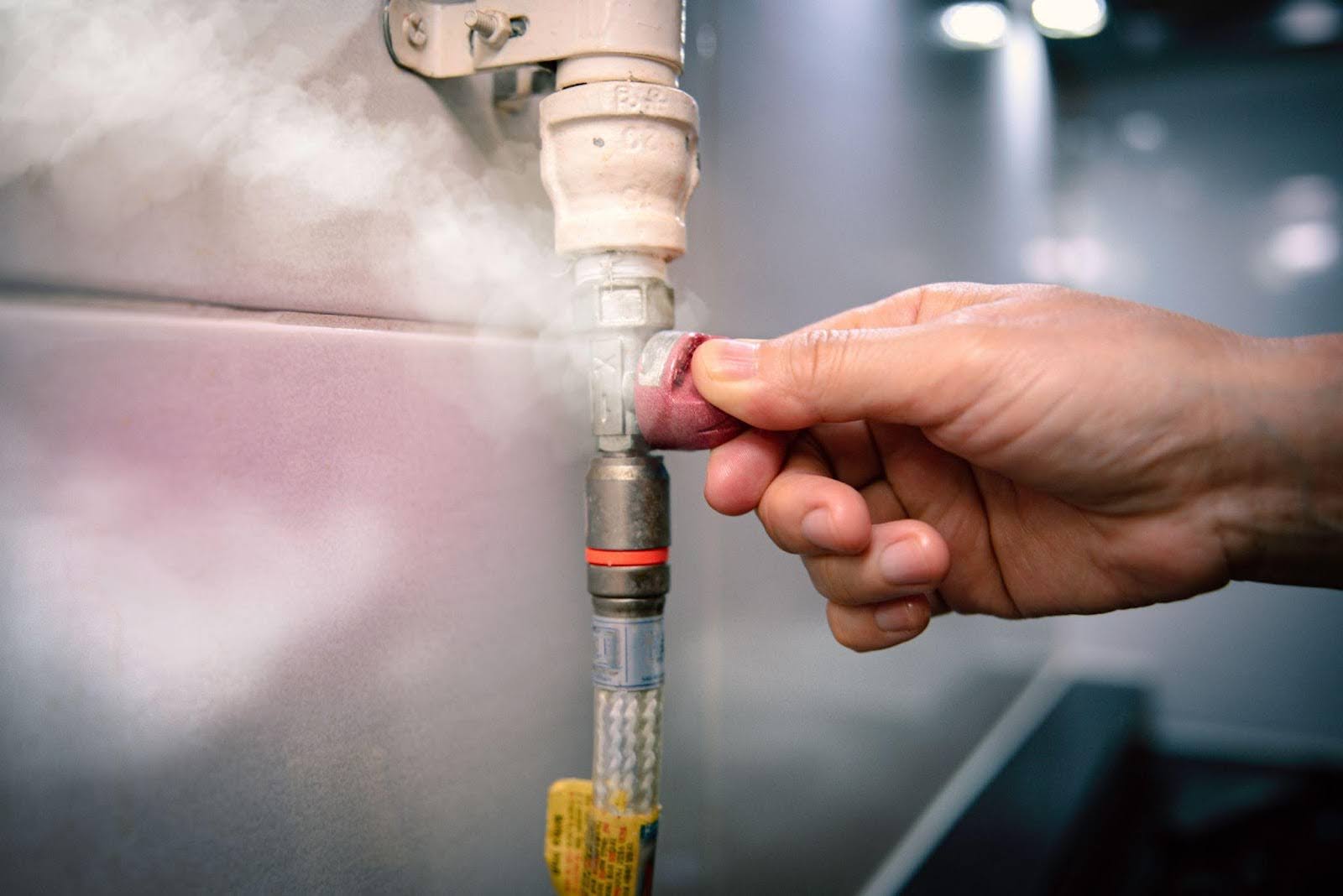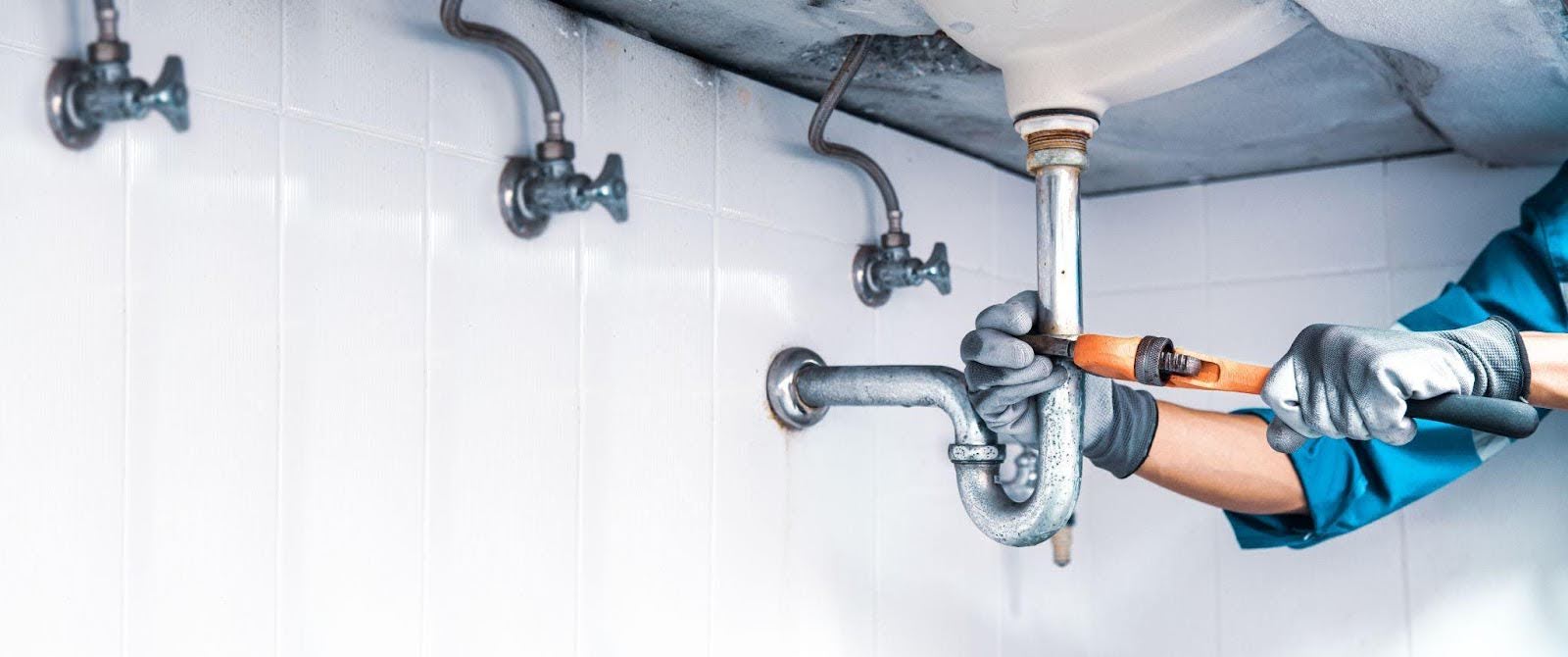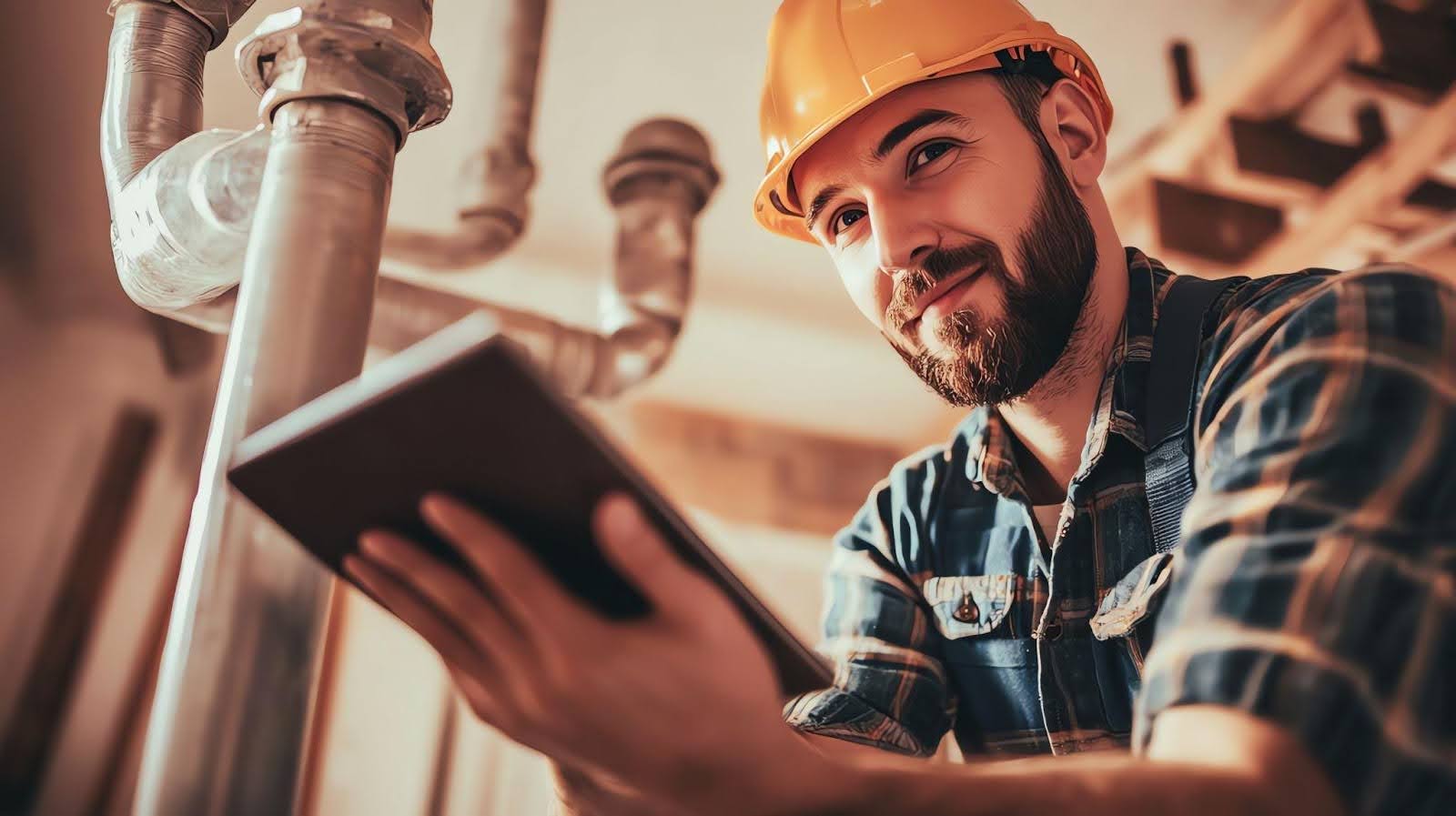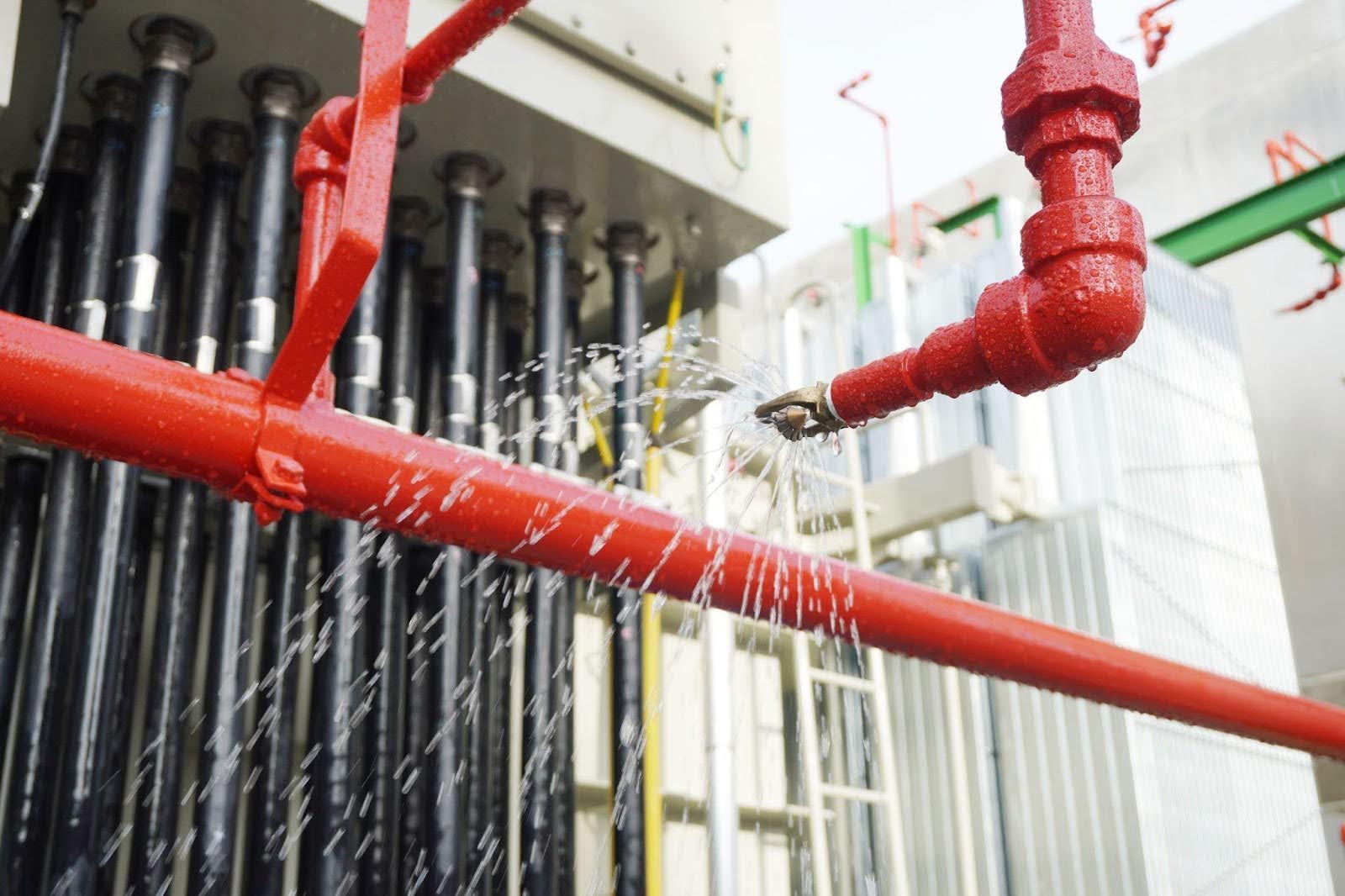Burst pipes are a common and severe household disaster that is able to escalate quickly from a minor leak to a major crisis. Rapid response is crucial when dealing with a burst pipe, as the damage affects floors, walls, and even compromises the structural integrity of your home within minutes.
Being able to recognize early signs of a pipe issue, such as unexpected drops in water pressure, the sound of rushing water, or unexplained damp patches, is essential. Quick actions like shutting off the water supply and assessing the damage are critical in mitigating both immediate and long-term damages, which are costly and stressful.
Staying informed and prepared is your best defense against the potential chaos of a burst water pipe. Let’s explore the essential knowledge you need to effectively tackle this urgent problem, safeguarding your home and loved ones from potential disasters.
Causes of burst water pipes
Freezing temperatures
One of the leading causes of burst pipes is freezing conditions. Water expands as it freezes, and this expansion exerts tremendous pressure on the containment of the pipe, which causes it to burst if the pressure is not relieved.
Corrosion
Over time, pipes may corrode, particularly those made from metal. Corrosion weakens the structural integrity of the pipes, making them more susceptible to bursting under normal pressures. The rate of corrosion depends on the water quality and the pipe material.
High water pressure
Excessive water pressure stresses pipes. Residential plumbing systems are typically designed to handle a certain pressure level (around 40-60 psi). Pressure exceeding these limits leads to pipe fatigue and eventual rupture.
Types of pipes prone to bursting
Galvanized steel
Once common in older homes, galvanized pipes are particularly prone to corrosion and rust.
Copper pipes
While durable and corrosion-resistant, copper pipes are susceptible to freezing due to their excellent thermal conductivity.
PVC pipes
These also burst under freezing conditions. Although PVC pipes handle cold better than metal pipes, they may become brittle and crack when the water inside them freezes.
Understanding these risks and the types of pipes in your home helps you take preventative measures, such as insulating pipes, regulating pressure, and replacing old, corroded piping before serious problems arise. This proactive approach is key to maintaining a safe and secure plumbing system.
Immediate dangers of a burst pipe
When a water pipe bursts, the immediate dangers can range from structural damage to serious safety hazards. Understanding these risks is crucial for effective and swift response to minimize the impact on your home and ensure your safety.
Water damage
The most obvious consequence of a burst pipe is water damage. Water quickly seeps into your home’s walls, floors, and foundational elements, weakening structural integrity and causing long-term issues like mold and mildew growth. Furnishings, valuable belongings, and important documents also suffer irreparable damage if not promptly removed from affected areas.
Flooding risks
A burst pipe may lead to significant flooding, particularly in basements or lower levels of a building. This exacerbates the water damage to property but also makes accessing critical shut-off valves or repair tools more difficult, delaying efforts to stem the flow and start the recovery process.
Electrical hazards
Water from burst pipes poses serious risks when it comes into contact with electrical systems, including outlets, wiring, and appliances. The risk of electrocution increases dramatically in such situations, making it vital to shut off power to the affected area through the main breaker immediately if it is safe to do so.
Quickly addressing these dangers involves shutting off the water supply to prevent further damage, turning off electricity to the area if there’s a risk of water contact with electrical systems, and initiating the clean-up and drying process as soon as possible.
Calling professionals for emergency repairs and water mitigation will ensure the damage is managed effectively and safely.
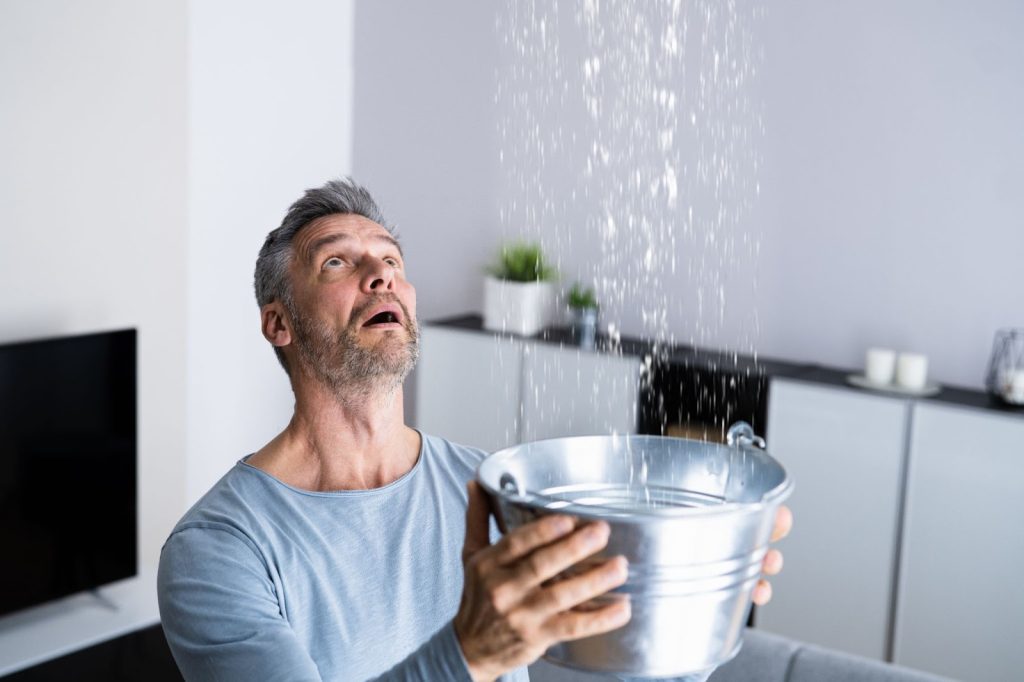
Long-term consequences
A burst water pipe leads to severe long-term consequences if not promptly and effectively addressed. These issues have lasting impacts on your home’s safety and value, as well as your health.
Mold and mildew growth
The damp conditions caused by a burst pipe create an ideal environment for mold and mildew to thrive. These fungi quickly spread within 24 to 48 hours after exposure to moisture, embedding themselves in walls, carpets, and other porous materials.
The presence of mold poses significant health risks, including respiratory problems, allergies, and more severe reactions in individuals with compromised immune systems.
Structural damage
Water from a burst pipe weakens the structural components of your home. Prolonged exposure to water causes wood to swell and rot, compromises the integrity of drywall, and even corrodes metal parts. Such damage requires extensive repairs but also leads to long-term issues with the stability and safety of your home.
Preventative measures
Taking proactive steps to prevent burst water pipes is essential for safeguarding your home from this disruptive and costly event. Here’s how to protect your plumbing system effectively:
Insulate your pipes
In colder climates, insulating your water pipes prevents the water inside from freezing, a common cause of pipe bursts. Use foam tubing or heating tape to insulate pipes in unheated areas such as basements, attics, garages, and exterior walls.
Conduct regular inspections
Regularly check your plumbing for signs of wear and corrosion. Early detection of rust, discoloration, or minor leaks prevents major issues. Also, be vigilant for any unusual dampness or water stains on walls and ceilings that could indicate hidden leaks.
Consider having a professional plumber inspect your system to catch problems that might escape the untrained eye.
Manage water pressure
If your water pressure consistently exceeds 60 psi, installing a pressure regulator on your main water line is advisable. Regular monitoring with a gauge also helps maintain safe pressure levels.
What to do when a pipe bursts
Here’s a streamlined guide on the critical steps to take immediately, how to limit further damage, and when to call in professionals:
Immediate steps
- Shut off the water main: First, halt the water flow by turning off the main water supply to your home, preventing further damage.
- Cut electricity: Switch off electricity in affected areas for safety, particularly if water is near electrical outlets or appliances. Avoid contact with water if you need to access the fuse box; instead, consider calling an electrician.
- Contact emergency services: If there’s a significant risk like major flooding or potential electrical hazards, contact emergency services immediately.
Mitigation efforts
- Remove water: Start removing standing water using whatever tools you have — buckets, towels, or wet/dry vacuums. The faster you remove the water, the less damage it will cause.
- Increase airflow: Open windows and use fans to circulate air and help dry the area quickly, crucial for preventing mold, which can start forming within 24 hours.
- Deploy dehumidifiers: Set up dehumidifiers to extract moisture from the air, speeding up the drying process.
- Remove soaked items: Clear water-soaked items like rugs and furniture to a ventilated area or outside to dry.
Calling in the Professionals
- Consult a plumber: After addressing immediate concerns, bring in a professional plumber to evaluate and repair the burst pipe and inspect for any other potential issues.
- Restoration services: For extensive water damage, consider hiring restoration experts who specialize in drying out homes, preventing mold, and restoring damaged property.
- Insurance claims: If covered, contact your insurance provider to start the claims process and get recommendations for approved restoration services.
Always prioritize safety, and don’t hesitate to seek professional help to effectively handle the aftermath of a burst pipe.
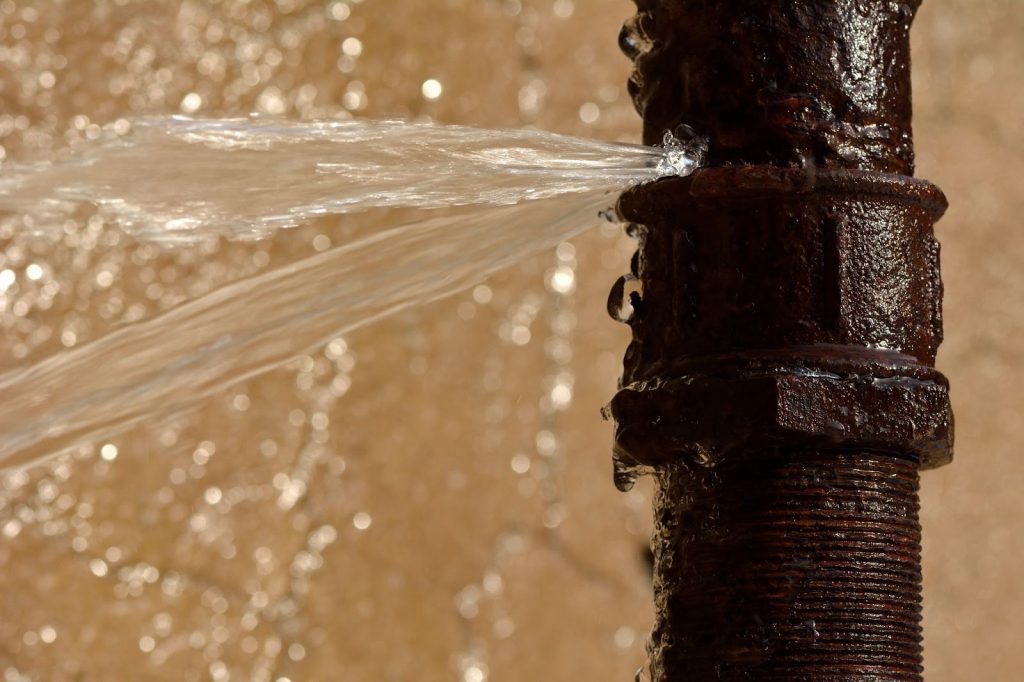
Don’t let a burst pipe become a bigger problem — call Salisbury Plumbing
Navigating the aftermath of a burst water pipe is daunting, but understanding the risks and knowing how to respond mitigates the damage. For reliable and efficient service, consider reaching out to Salisbury Plumbing. Our team of experts specializes in quickly addressing and repairing burst pipes, ensuring your plumbing system is restored to optimal condition with minimal disruption to your home.
Contact Salisbury Plumbing, and trust us to provide the expertise and support you need during such emergencies, safeguarding your home against the potential long-term consequences of water damage.
toto slot

